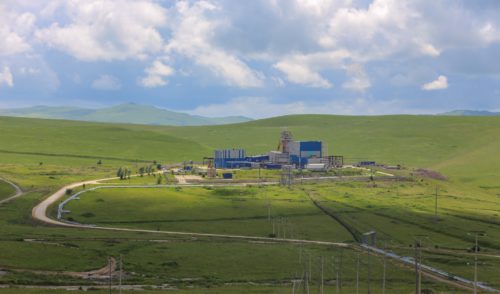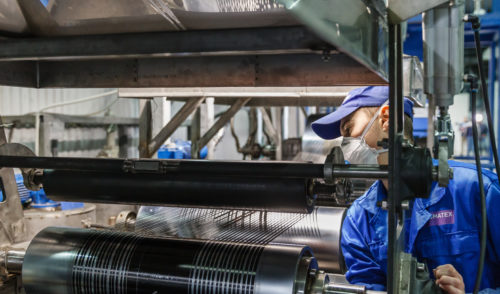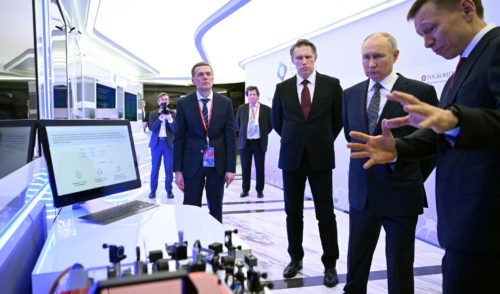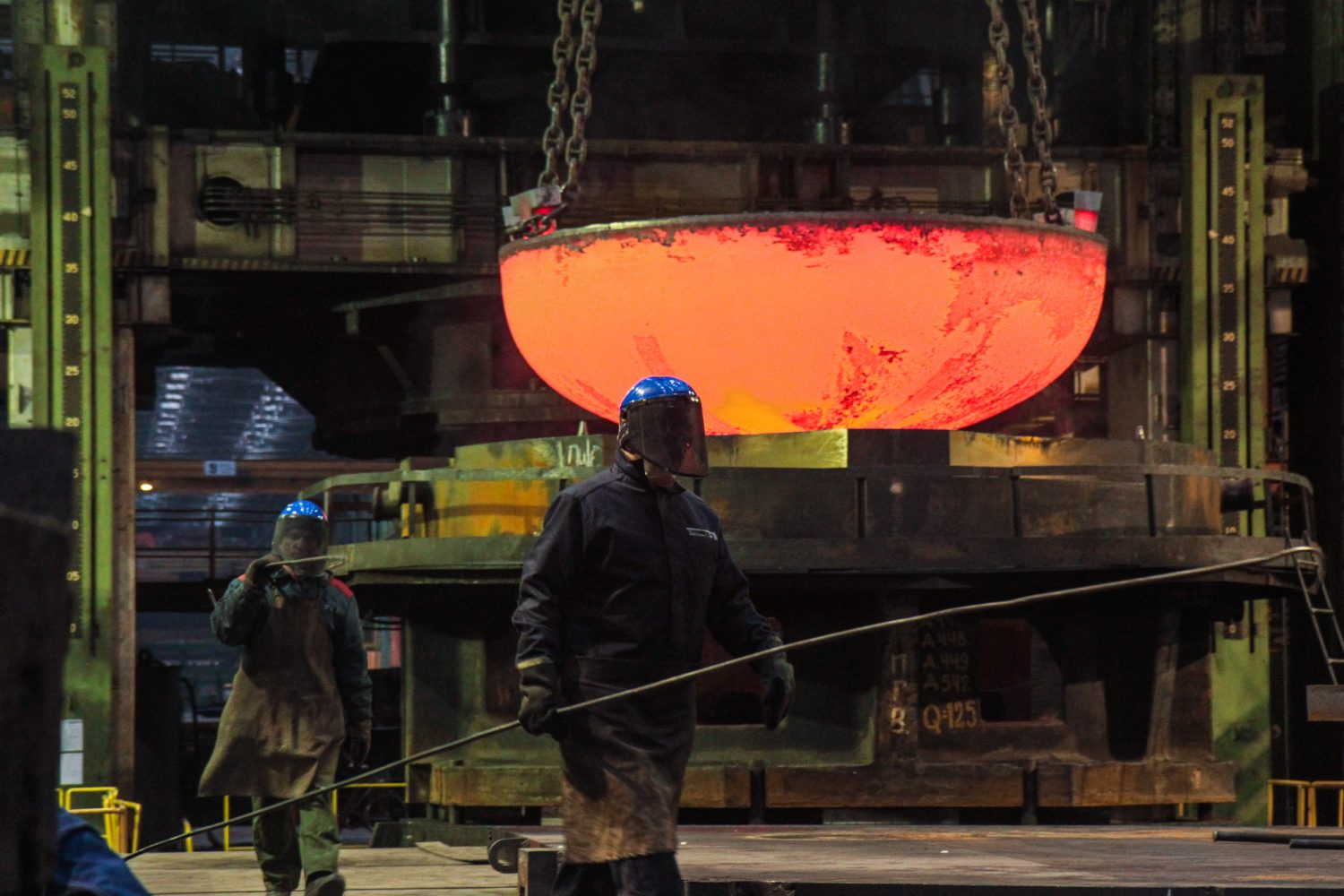
Setting Course for Nuclear
back to contentsTurkey’s Government issued a construction license for Akkuyu Unit 2. In an interview to Bloomberg, Turkish Minister of Energy and Natural Resources Fatih Dönmez said that the construction of the first Turkish nuclear station ran just as planned, “The foundation for the first unit is almost completed, and we proceed with protection cladding.” The minister expressed hope that with the licenses granted “the construction of both units will gain momentum”. Unit 1 is planned to be commissioned in 2023, he added.
The production of machinery and equipment for the Akkuyu Nuclear Power Plant is also running at pace. Attommash, a production site of AEM Technologies (a subsidiary of Rosatom’s engineering division) in Volgodonsk, went ahead with stamping tank bottoms for the passive core flooding system (PCFS) to be installed at Akkuyu Unit 1. PCFS is an essential safety system of the nuclear power plant. It is designed to remove afterheat in a loss-of-coolant accident at the primary loop. Weighing more than 77 tons, the PCFS tank is 10.5 meters high and 4.24 meters in diameter. Attommash is expected to manufacture 16 bottoms for the PCFS tanks to be installed at Akkuyu Unit 1.
Earlier in July, a core catcher, which is another essential safety device, was delivered to the Akkuyu site. The core catcher is a pioneering safety device designed by Russian nuclear engineers to mitigate effects of a nuclear meltdown. It can hold molten core for an unlimited period of time, preventing radioactive materials from escaping the containment building.
Akkuyu has an improved core catcher featuring a higher seismic safety level (SSE) and compatible with the new design of a nuclear power plant that can operate without external power for up to three days in case of power outage.
Sberbank, Russia’s largest state-owned banking and financial services company, will provide funding for the Akkuyu project by extending a 7-year USD 400m loan to Rosatom’s subsidiary Akkuyu Nükleer.
In the meantime, Turkey is establishing a comprehensive ecosystem for the nuclear industry. In August alone, Turkish President Recep Tayyip Erdogan signed three presidential decrees related to the power industry. One of the decrees calls for urgent measures to be taken by public authorities to facilitate timely implementation of nuclear projects and a more efficient use of nuclear power for civil purposes. The document also guarantees government support for nuclear plant construction projects.
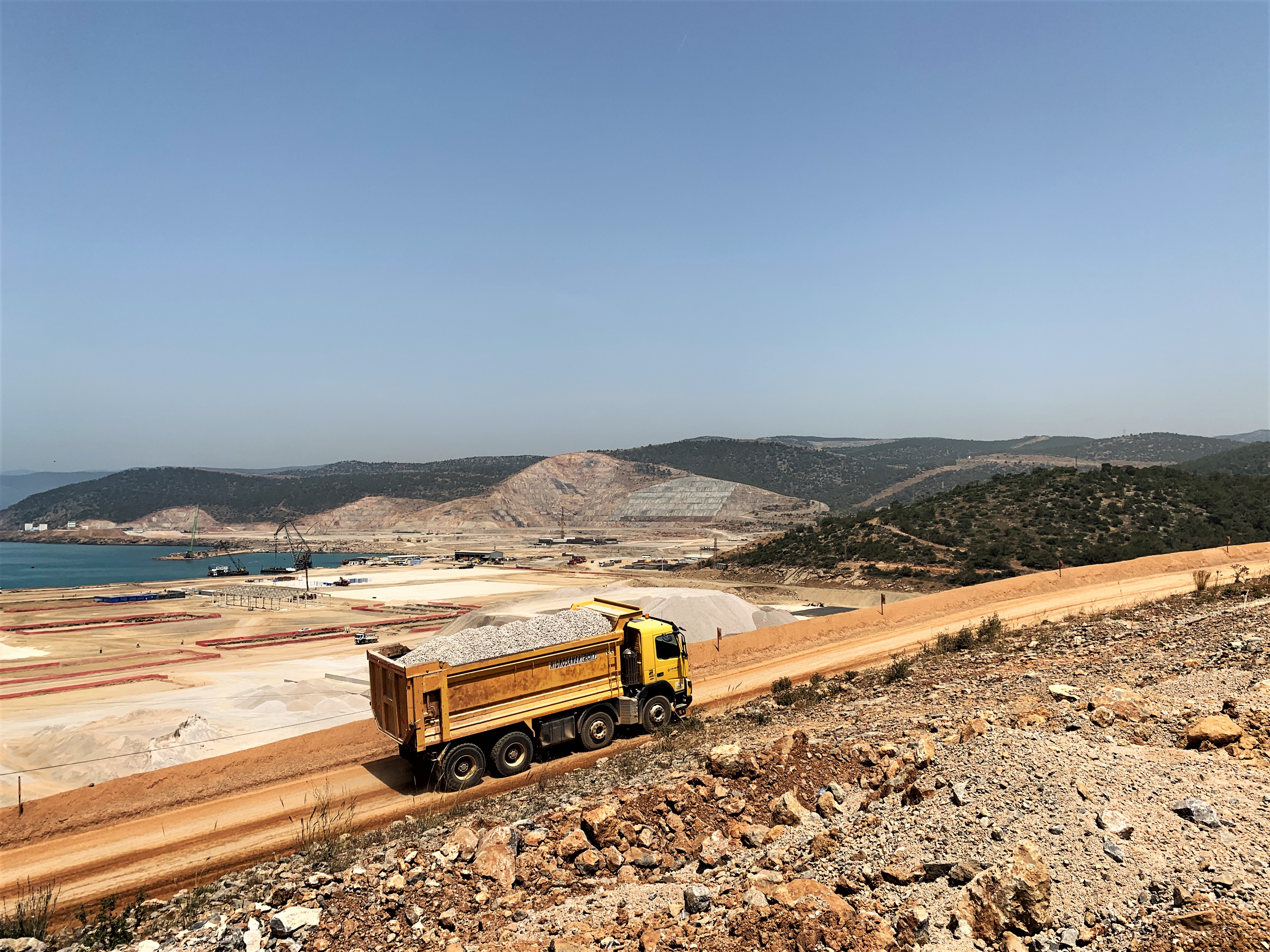
Turkey’s Akkuyu nuclear power plant will also require highly qualified nuclear engineers and operators who are now doing professional retraining programs at Russian universities. Several young talents have already graduated from Russia’s National Research Nuclear University (MEPhI) and started working at the Akkuyu construction site.
Leading Turkish experts and researches keep repeating that nuclear power is a key to the country’s economic development. Akhmed Demirak, Doctor of Science and an associate professor at Muğla Sıtkı Koçman University’s Faculty of Sciences, reports that Turkey’s total installed capacity would reach 110–130 GW by 2023 while consumption would be as high as 500 GW.
“Even if we take advantage of the combined potential of hydro power and renewable energy, only half of the expected electricity demand will be satisfied in 2023. Turkey’s first Akkuyu nuclear power plant with the total power capacity of 4,800 MW will therefore help to diversify power sources, on the one hand, and play an important role in dealing with the shortage of electric power, on the other,” Dr. Demirak said. According to him, Akkuyu NPP will secure reliable power supply by reducing dependence on imported power and the country’s negative trade balance. “Nuclear construction in Turkey is a matter of necessity rather than choice,” Dr. Demirak stressed.
Nuclear power is completely safe for the environment. In order to demonstrate this, Rosatom organized an international fishing tournament near Leningrad NPP, the largest nuclear power plant in Russia. The tournament was attended by fishers from the Mersin Province where Akkuyu nuclear power plant is being built. The Turkish team was awarded a special prize for their will-to-win spirit. The catch was first presented for weigh-in and then tested for radiation contamination. Russian researchers who were present at the tournament found it to be clean and assured that the fish was safe for consumption. At the end of the competition, the fish was cooked according to the traditional Russian recipes.
For reference
The Akkuyu Nuclear Power Plant will have four units with Russian-designed Generation III+ VVER-1200 reactors.
Construction of Unit 1 started in April 2018. The first unit is planned to be commissioned in 2023, followed by one unit every subsequent year. This August, the construction site was visited by Turkey’s Minister of Energy and Natural Resources Fatih Dönmez and Rosatom’s Director General Alexey Likhachev. They discussed the possibility of local supplies for the project, engagement of Turkish companies, acquisition of third-party investors to buy a stake in Akkuyu Nükleer, and connection of Akkuyu NPP to the Turkish national power grid. An engineering, procurement and construction (EPC) contract for the Akkuyu Nuclear Power Plant was signed during their visit to the site. According to the document, the contractor will be a joint venture of Russian TITAN-2 and Turkish construction company IC Ictas Insaat Sanayi ve Ticaret A.S.


